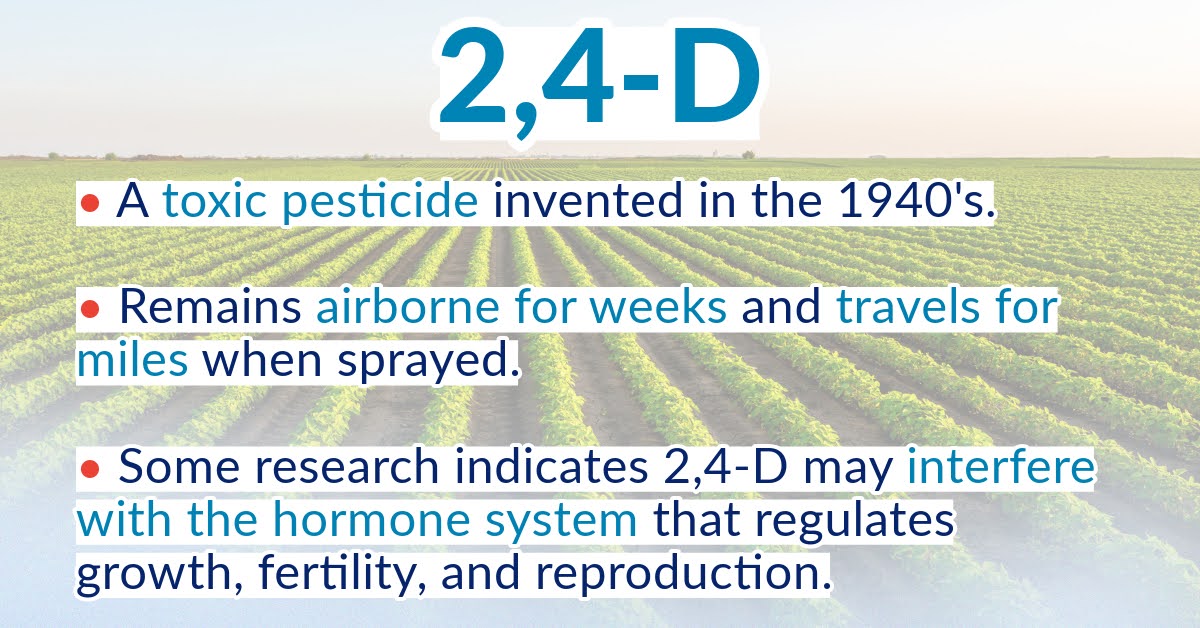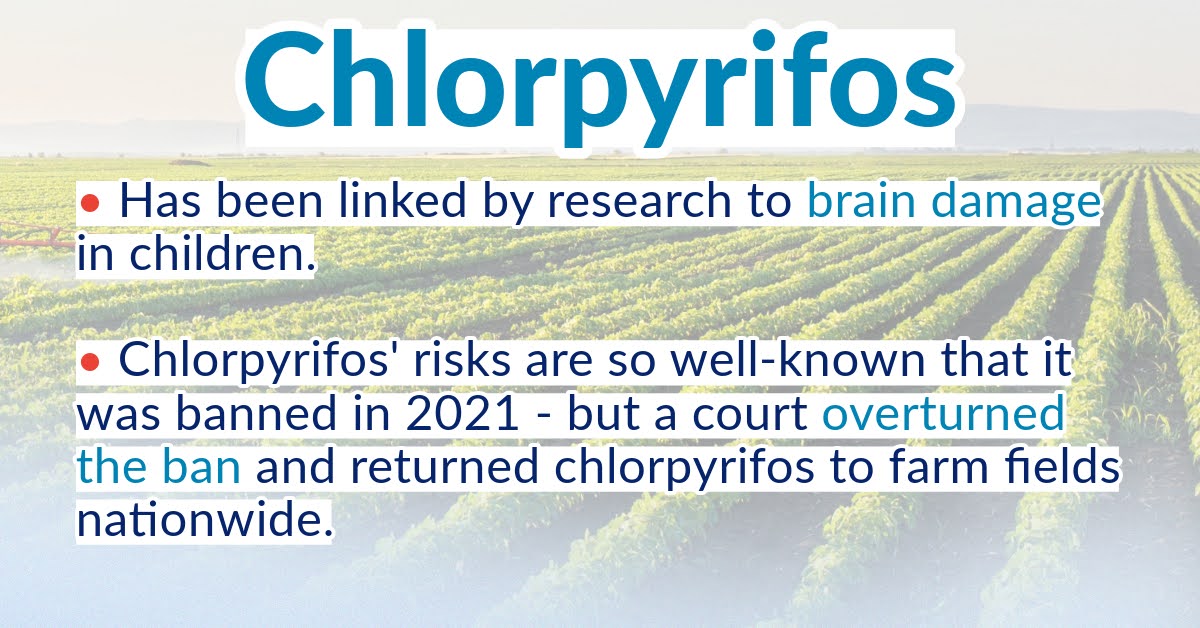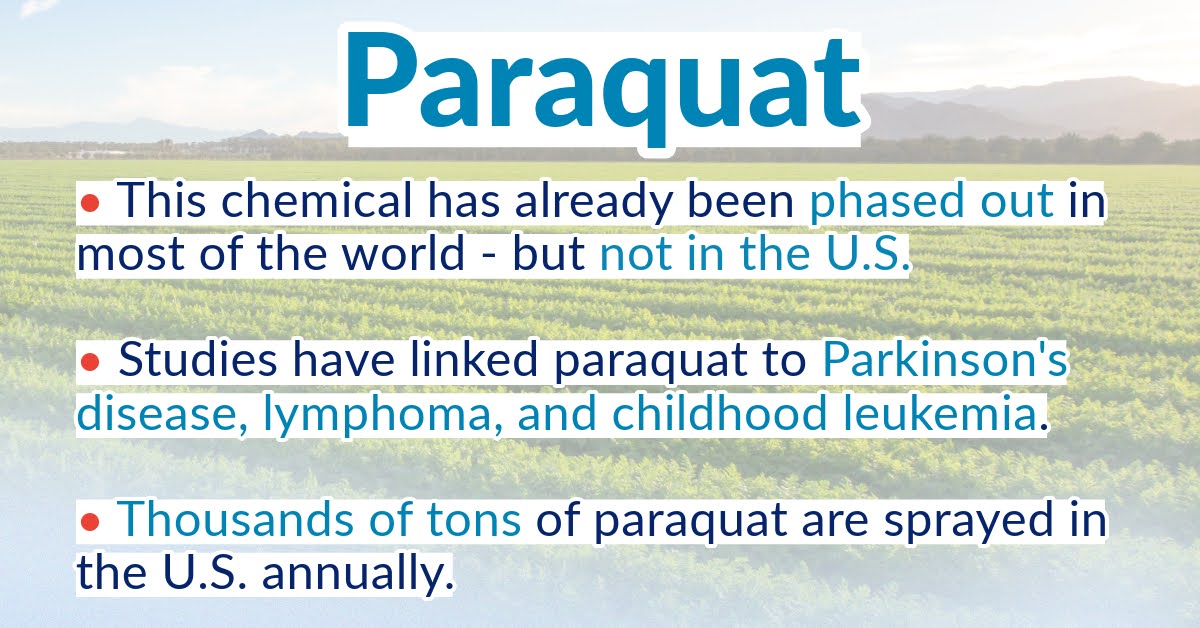
John,
We should be able to trust that our farms and food are free from toxic chemicals -- but unfortunately, our food system in America is doused with pesticides.
These chemicals often aren't the kind of thing you might buy at a hardware store to help keep pests out of your garden. They're industrial chemicals with strange names that can be hard to keep track of.
Here are three pesticides in use in the U.S. that you may not be familiar with -- and what you should know about them:

The toxic pesticide 2,4-D is almost a century old, and once nearly became a thing of the past -- but in recent decades, the Environmental Protection Agency (EPA) renewed and expanded the use of this highly toxic pesticide on farms.1

A current proposal from the EPA would reinstate a partial ban on chlorpyrifos, but it doesn't go far enough to protect kids from this brain-damaging pesticide. The proposal would still allow the use of chlorpyrifos on 11 different kinds of crops.2

Few pesticides are more dangerous than paraquat. One study found that farmers who use paraquat (even with full safety precautions) are 2.5 times more likely to be stricken with Parkinson's Disease.3
Raising awareness about the risks of these toxic pesticides is the first step toward phasing them out of our food system for good. At PIRG, we know there's a safer way to farm -- and supporters like you are fueling the advocacy that will help build a safer, healthier future for all.
Thank you for your support,
Faye Park
President
P.S. Our campaigns to ban toxic pesticides take resources. Will you support our work to get these dangerous chemicals off our farms and out of our food with a donation today?
1. Michael Hawthorne, "Illinois trees and plants suffering widespread damage from renewed use of decades-old weedkillers on farms, studies show," Chicago Tribune, August 4, 2024.
2. Roni Caryn Rabin, "E.P.A. Again Seeks Limits on a Harmful Pesticide," The New York Times, December 4, 2024.
3. Angela Spivey, "Rotenone and Paraquat Linked to Parkinson's Disease: Human Exposure Study Supports Years of Animal Studies," National Institute of Health, June 2011.
Your donation will power our dedicated staff of organizers, policy experts and attorneys who drive all of our campaigns in the public interest, from banning toxic pesticides and moving us beyond plastic, to saving our antibiotics and being your consumer watchdog, to protecting our environment and our democracy. None of our work would be possible without the support of people just like you.
Join us on Facebook | Follow us on Twitter
U.S. PIRG, Main Office: 1543 Wazee St., Suite 460, Denver, CO 80202, (303) 801-0582
Federal Advocacy Office: 600 Pennsylvania Ave. SE, 4th Fl., Washington, DC 20003, (202) 546-9707
Member Questions or Requests: 1-800-838-6554.

If you want us to stop sending you email then follow this link -- unsubscribe.